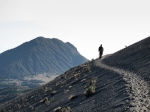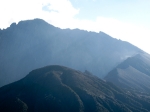East African boarders, overland. Tales of seedy characters, red-eyed border patrol, machine guns wasting in corners, dank corridors. Stories abound, we prepared for the worst, three borders in twenty hours, Tanzania, Kenya and Uganda.
“You will be here, at the station, 2:30? we,” the voice breaks, unclear. I step from the loud bar, “But the ticket says it leaves at 4:00…”
“Be here now at 2:00..” and the line goes silent. Guide books dissuade the overnight bus to Uganda, rutted roads, the midnight stop in Nairobi, banditry, precisely our reasoning to go along.
The station feels cramped, sweaty bodies too close, touching, waiting. Bus stations become flea markets as old shoes, recycled shirts, magazines, and local food (roasted corn cob, samosas, chapatis) make the rounds, “sista, want to buy water?” a boy asks, wriggling through the crowd.
Eventually the red Kampala Coach pulls up, faded signs of luxury past, the AC and foam cushions died out long ago, and the screen that once played movies is now a skipping nineteen hour Michael Jackson tribute, but the leg room is decent.
I watch from my window seat as sacks of potatoes, steel rods, planks of wood are tucked under the bus, money passes from pockets to greedy hands, there are no limits. The added weight tires the axel, smog chokes the tailpipe, we bid farewell to Tanzania.
New roads to Kenya are in progress. Miles of black men line the route swinging machetes, pick axes and shovels, I watch the sweat dripping off their bodies. Labor is cheap but at a cost, many of these men are merely boys. Tanzania’s public education ends early, about eleven years old, only those affording secondary school can continue. The same government that won’t provide them basic education is now hiring them on for cheap labor.
Two hours later razor-wire fences, guards and guns litter the landscape. Leaving the bus, we follow the crowd into a tired, dimly lit room, the young patrolman’s eyes glued to the match, Chelsea vs Manchester. He takes our passports, stamps them with a once over and waves us on. Incredulous, we cross the boarder.
Kenya side, immigration office – even less interested he takes fifteen dollars for a transit visa, eyes on the Manchester game, smiles and wishes a pleasant trip. What, where is the chaos, the danger, the unsavory characters?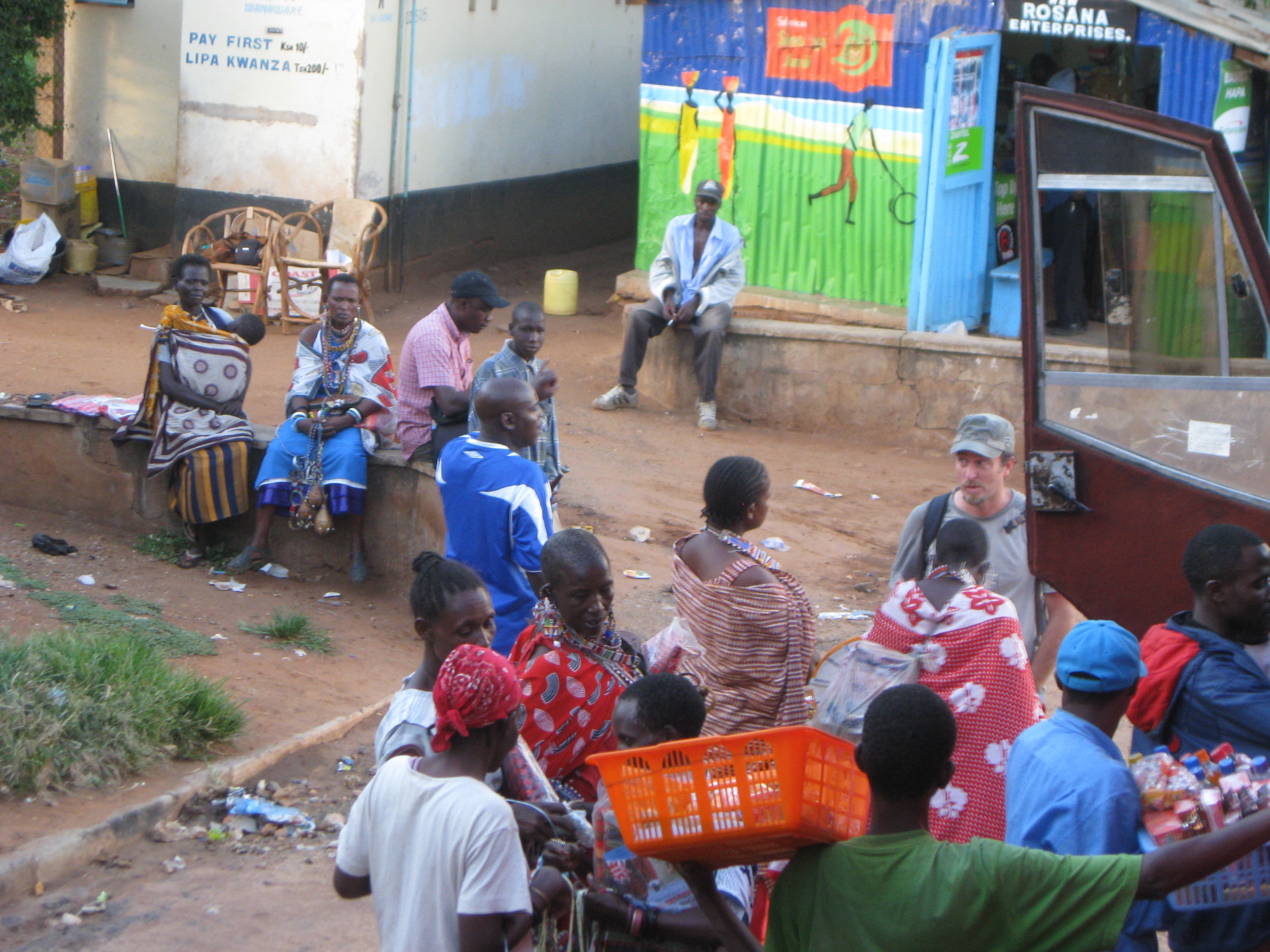
I was reprimanded by a Kenyan Maasai woman for snapping pictures of Jay outside our bus, “You canNOT take pictures of us!”
She was bitter we didn’t buy any trinkets, the same 20 trinkets sold by all the street vendors.
“I’m taking pictures of my boyfriend!” but she berated me even as we pulled from the border.
I am asleep and cannot see the lips of steel with ugly upright razor teeth laid across the road, urging vehicles to halt. Six times into the night, lights flash and Michael Jackson music rips through the bus, jarring us from sleep. The police board, guns hanging off shoulders, patting bags in overhead bins, nodding at sleepy riders, but it’s always the same, they find nothing and we carry on.
Police blocks aren’t specific to Kenya, several weeks ago in Tanzania, they found reason to confiscate our driver, bus and luggage. Stranded, we all waited, a calm African wait. At some point you begin to trust the process, knowing if you wait long enough, order will be restored, African style.
Our packs have little metal locks. Common knowledge, razors slice through canvas and belongings go missing; but my reasoning behind the bolts, evidence, evidence of tampering, should we need to prove contraband was planted. Jay says I have an overactive imagination. Hours later, our bus returns, luggage untouched and without word we have a new driver.
Uganda at dawn was beautiful, the border uneventful. Through entangled jungle, hills of forest, lush canopies, a paradise. Jay turns the page, reading from Foden’s The Last King of Scotland, “I finally clambered into one of the old Peugeots. ‘A hotel in Kampala, please. Somewhere clean.'”
And that’s just where we were headed, into Kampala.
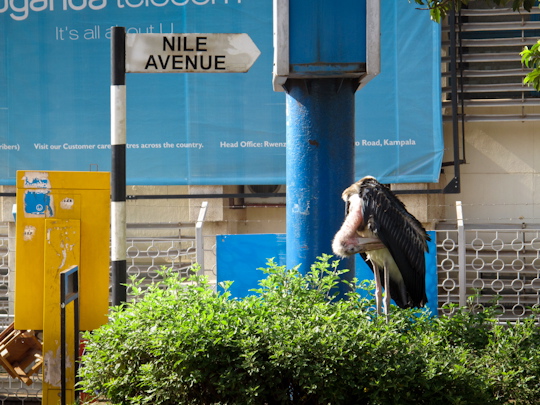 New York has the ubiquitous pigeon, Kampala has Marabou storks. Uganda’s stately birds reach the height of a six year old stumbling around in a tattered waiter’s suit while the wing spans almost nine feet.
New York has the ubiquitous pigeon, Kampala has Marabou storks. Uganda’s stately birds reach the height of a six year old stumbling around in a tattered waiter’s suit while the wing spans almost nine feet.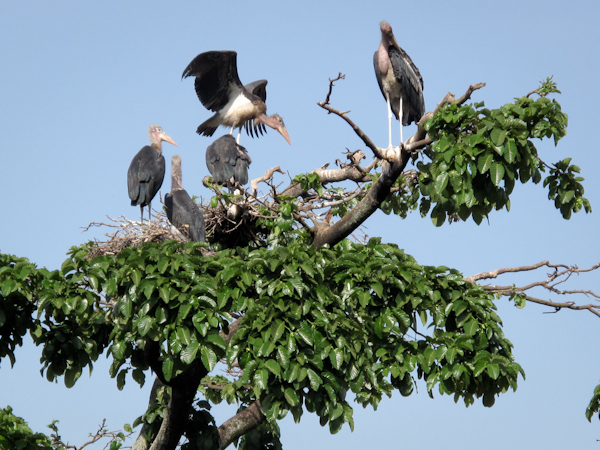 contemplation, the birds keep a tight eye on the patrons in the nation’s capital from telephone poles, lamp posts and tall ficus trees. Perched above, five squirm on a branch and the slightest movement causes a storm of debris. To my right three more compete for space, one stretch and the last in line is pushed from the cue.
contemplation, the birds keep a tight eye on the patrons in the nation’s capital from telephone poles, lamp posts and tall ficus trees. Perched above, five squirm on a branch and the slightest movement causes a storm of debris. To my right three more compete for space, one stretch and the last in line is pushed from the cue.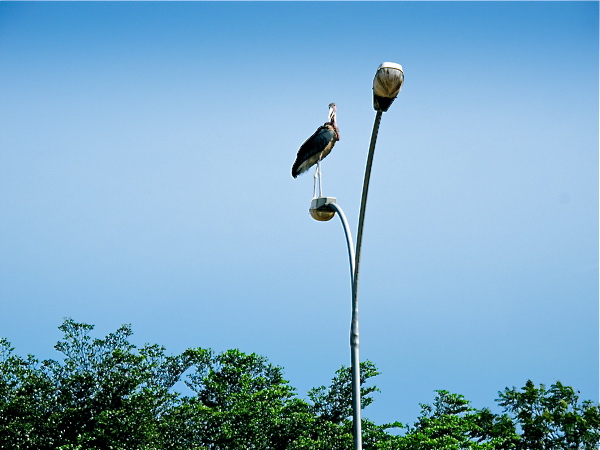 An early Sunday stroll and the storks are out in droves, commandeering metal trash bins, slow and methodical, picking out the tastiest morsels. A bird of such proportions leaves in its wake an equal size turd. While one can hop around New York’s sidewalk, landscaped with pigeon art, it pales in comparison to Kampala’s stork splatterings.
An early Sunday stroll and the storks are out in droves, commandeering metal trash bins, slow and methodical, picking out the tastiest morsels. A bird of such proportions leaves in its wake an equal size turd. While one can hop around New York’s sidewalk, landscaped with pigeon art, it pales in comparison to Kampala’s stork splatterings.

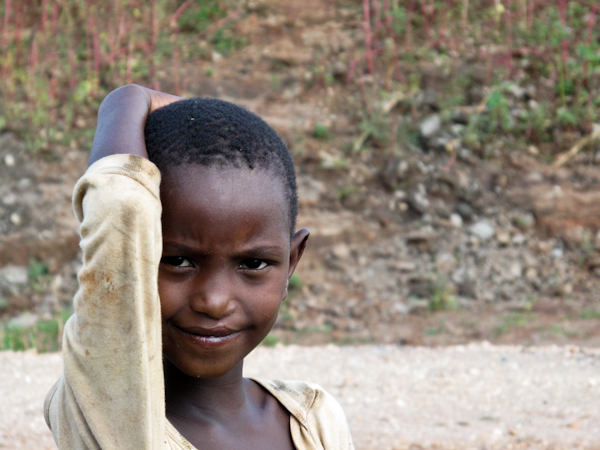 Around the colossal baobab tree mamas in bright kangas sell tomatoes and red onions while the village elders gather seeking shade. A scattering of chinese rusted bicycles perched up on stands lean into one another. School girls in frayed uniform skirts of green and blue run past.
Around the colossal baobab tree mamas in bright kangas sell tomatoes and red onions while the village elders gather seeking shade. A scattering of chinese rusted bicycles perched up on stands lean into one another. School girls in frayed uniform skirts of green and blue run past.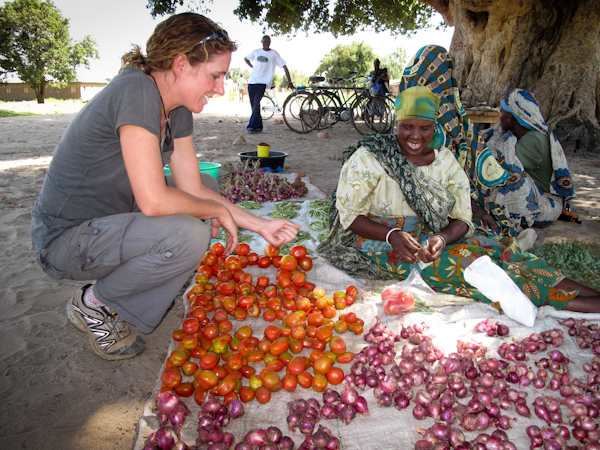 Heads turn as the white land-cruiser explodes through a cloud of dust, I wonder what we look like to the unassuming villagers. Amiri is first to address the crowd. Wise and driven beyond his years, with a passion for his people and a disarming, quick wit, he eases the crowd and summons welcome for the rest of our team.Long and formal greetings are expected in Tanzania, anything short is considered rude and ill mannered. “Shikamo” is reserved for elders, Jambo and Mambo are next, “Habari za nyumbani, za asubuhi, za yako?” translates to “what’s the news of your family, your morning, you?” We are greeted by each elder, returning the formalities.
Heads turn as the white land-cruiser explodes through a cloud of dust, I wonder what we look like to the unassuming villagers. Amiri is first to address the crowd. Wise and driven beyond his years, with a passion for his people and a disarming, quick wit, he eases the crowd and summons welcome for the rest of our team.Long and formal greetings are expected in Tanzania, anything short is considered rude and ill mannered. “Shikamo” is reserved for elders, Jambo and Mambo are next, “Habari za nyumbani, za asubuhi, za yako?” translates to “what’s the news of your family, your morning, you?” We are greeted by each elder, returning the formalities.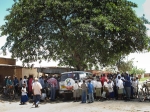
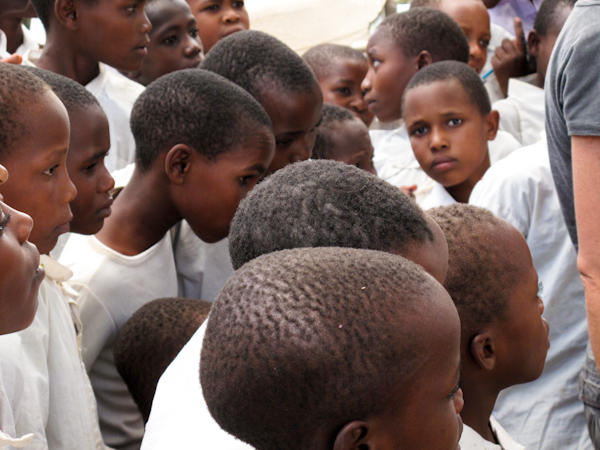
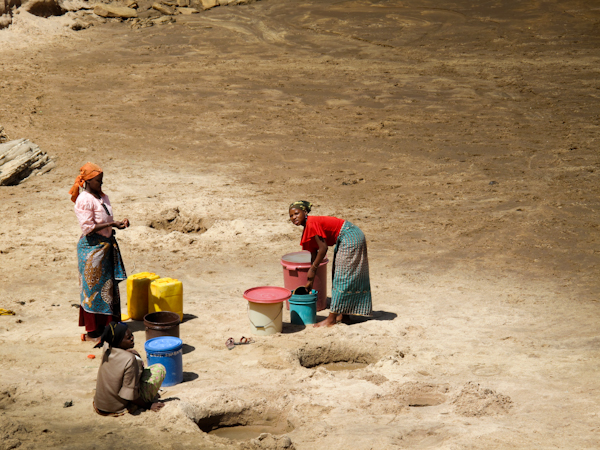
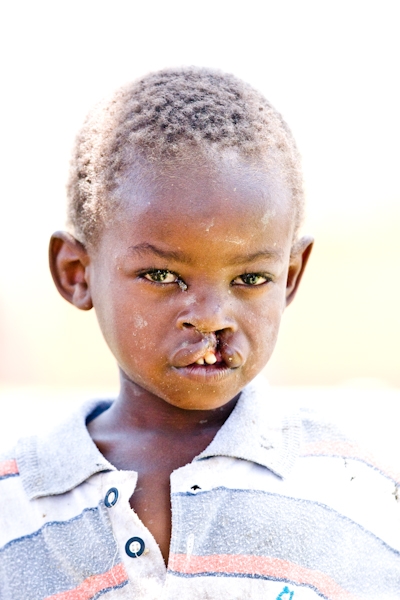

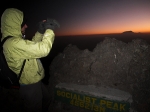 We climbed ten thousand feet in less than forty eight hours, camping twice along the way. Five minutes before sunrise, Darlene and I gained the summit and Marco joined us as the sun rose over Mount Kilimanjaro in the distance. We were the first to summit that day just ahead of a massive group of Slovenians, who just missed the sunrise but immediately commandeered the tiny peak, ill-tempered.
We climbed ten thousand feet in less than forty eight hours, camping twice along the way. Five minutes before sunrise, Darlene and I gained the summit and Marco joined us as the sun rose over Mount Kilimanjaro in the distance. We were the first to summit that day just ahead of a massive group of Slovenians, who just missed the sunrise but immediately commandeered the tiny peak, ill-tempered.